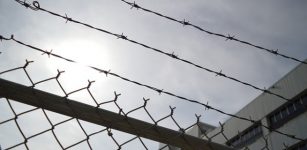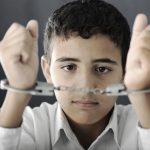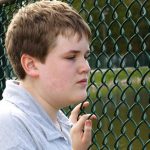“This Is Institutional Child Abuse”: Mistreatment of Child Detainees in NSW

A leaked document has revealed that senior members of Juvenile Justice approved young male detainees being locked up for 23 hours a day, handcuffed during their only hour of “recreation”, denied schooling and prohibited from mixing with other children.
“This is institutional child abuse,” UNSW criminology professor Chris Cunneen says, supporting views expressed by criminal lawyers that the conditions amount to solitary confinement.
At least four boys aged 16 and 17 were subjected to these conditions under “detainee risk management plans”, which lasted around 10 days before reviews were undertaken.
After one review, a well-behaved boy was allowed to mix with others for one hour 7per day, but had to remain in his cell for 22 hours per day for the next eight days despite his good conduct.
After another, a boy was kept in isolation for eight days because he scratched graffiti on his cell wall – out of sheer boredom.
NSW Guidelines
Corrections guidelines prohibit children from being confined to a cell as punishment for more than 24 hours. Kids can, however, be kept on their own indefinitely for the safety of themselves or others under “segregation” and “separation” rules.
“There is no practice of ‘solitary confinement’ in NSW,” a Juvenile Justice spokeswoman said. “Solitary confinement means isolating a person without any meaningful contact with another human being for extended periods.”
She believes current practices do not amount to ‘solitary confinement’ because ‘segregated’ and ‘separated’ kids can use an intercom to contact prison staff, health workers and chaplains.
In September, Corrections minister David Elliott told parliament that 13 children were confined for more than 24 hours over the past financial year. He later said there had only been one such case, blaming a record-keeping error.
The NSW Ombudsman, however, found that Juvenile Justice recorded 123 “segregations” and 87 “separations” lasting for more than 24 hours over the past financial year.
Psychological effects
In 2011, the UN Special Rapporteur on torture, Juan Mendez, called for all countries to ban the use of solitary confinement on juveniles.
More recently, Ruth Barson of the Human Rights Law Centre pointed to evidence from the US which suggests that solitary confinement causes irreversibly damage to children. “It’s a form of cruel, inhuman and degrading treatment,” she said.
An American Civil Liberties Union report similarly found that solitary confinement was highly detrimental to the mental development of teeangers. The report noted that the second decade of life entails rapid development in the areas of the brain associated with inhibition, risk-taking and emotional regulation, with hormonal changes linked to increasing aggression and anti-social conduct. She argued that juveniles cannot be characterised as fully culpable actors, highlighting the need for appropriate rehabilitation.
The ACLU report concluded that significant, permanent harm can arise from unsuitable interventions during a person’s teenage years. Keeping children confined, it found, is counterproductive to rehabilitation – triggering or exacerbating mental health issues, anti-social behaviour and an inclination towards offending.
Reoffending rates
The 2009 NSW Young People in Custody Health Survey found that 48% of boys and 61% of girls were re-incarcerated within 18-months of their release from juvenile detention, suggesting that locking kids up is not conducive to rehabilitation and/or children are not receiving the required support when incarcerated.
It further found that a whopping 80% of juvenile detainees will be subject to some form of correctional supervision within 7 years of release.
Detained kids often have far higher rates of mental health problems than the general population. Research out of the US found that upwards of two-thirds of young people in detention met the criteria for a mental disorder. The concern is that isolating children and denying them schooling and support can compound these issues.
Professor Louise Newman from the University of Melbourne points out that isolation can be more harmful for children than for most adults, and is highly counter-productive to rehabilitation.
“I think the fallacy about behaviour management and particularly these sorts of quite punitive approaches is that occasionally and probably more often than not, they worsen problems, they increase the young person’s distress and agitation,” she said.
Moving Forward
Corrections Minister David Elliot has attempted to downplay the issue, saying that corrections staff check on isolated children every 20 minutes. He did, however, say an internal review would be undertaken into behaviour management practices in juvenile detention centres.
Greens MP David Shoebridge believes an internal review is not enough.
“The review needs to be independent,” he said. “You can’t have the organisation that was engaged in this abuse to be undertaking its own review.”
Mr Shoebridge has called for a Special Commission of Inquiry into the treatment of detainees, or at the very least a full investigation by the Ombudsman.







